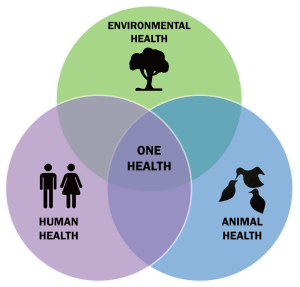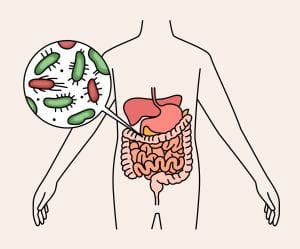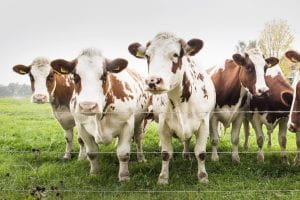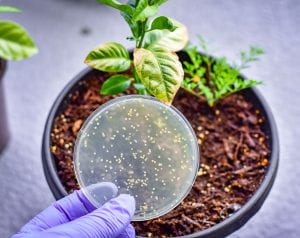Complex microbial communities (known as microbiomes) inhabit virtually every part of our planet—from ocean depths to mountaintops, across vegetation surfaces, within agricultural soil, and both on and within all living creatures.
The Center of Excellence in Microbiome Sciences joins faculty, postdoctoral scholars and graduate students from across the University of Maryland in pursuit of a deeper understanding of complex microbial communities, and how those microbiomes interact with each other and with our ecosystem.
Launched in February 2023 with startup funding from the University of Maryland Grand Challenges Grants Program, the center currently has faculty from the College of Agriculture & Natural Resources, the College of Computer, Mathematical, and Natural Sciences, and the A. James Clark School of Engineering. The center receives administrative and technical support from the University of Maryland Institute for Advanced Computer Studies.
One Health

The center’s research and scholarship is driven by a “One Health” paradigm—officially adopted by the Word Health Organization in 2016—which advocates for an integrated, unifying approach to balance and optimize the health of people, animals, and the environment.
Under the One Health concept, these subcategories give specific examples of the role that microbes have in our lives, and in the sustainability and health of our planet.
Human Health
 Disruptions in the human gut microbiome have been associated with intestinal disorders like diarrhea or inflammatory bowel disease, as well as mental health outcomes and the effectiveness of cancer immuno-therapies.
Disruptions in the human gut microbiome have been associated with intestinal disorders like diarrhea or inflammatory bowel disease, as well as mental health outcomes and the effectiveness of cancer immuno-therapies.
Microbiome-based interventions recently garnering FDA approval—such as fecal matter transplants—have been demonstrated to be an effective treatment for Clostridium difficile diarrhea (a recurring condition triggered by antibiotic use that primarily affects the elderly).
Animal Health
The microbiomes in the guts of cattle can help improve milk and meat production, as well as the health of animals, thereby reducing the need for antibiotic use and potentially preventing food-borne disease outbreaks.
Environmental Health
Many greenhouse gasses are produced in the guts of animals, agricultural soil, and wetlands. Yet microbes in soil and wetlands can, under the right conditions, degrade greenhouse gases, or detoxify harmful chemicals.
 Microbial communities associated with the roots of agricultural crops nourish the plants, help protect them from pathogens, and can even mitigate some of the impacts of a changing climate, thus improving crop yield and resilience.
Microbial communities associated with the roots of agricultural crops nourish the plants, help protect them from pathogens, and can even mitigate some of the impacts of a changing climate, thus improving crop yield and resilience.
